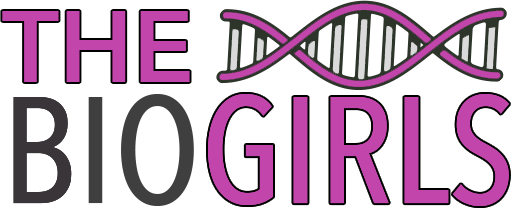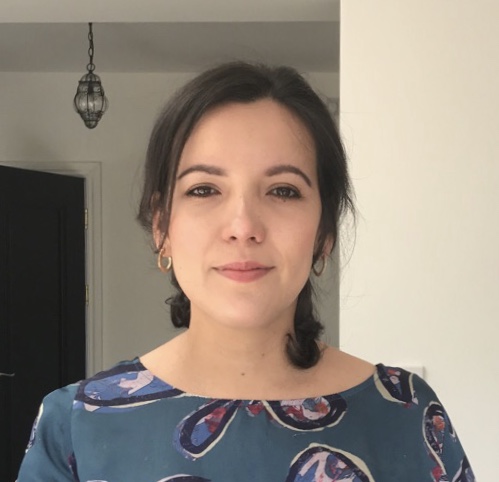We spoke with Silvia Rattigan (Torres), PhD, who works as Associate Director of Clinical Quality Assurance at MSD in Dublin, Ireland. We asked her about her job, career, education, and any advice she might have for anyone looking for a similar career. You can connect with Silvia on LinkedIn.
Can you explain what your job entails and what tasks you perform daily basis?
My primary role is to maintain oversight of the European portfolio of clinical trials for oncology. This means that, via audits and assessments, we verify that the clinical trials we oversee comply with study protocols, local regulations, and Good Clinical Practice (GCP). We do this to ensure the study subjects’ safety and the quality of the data obtained in our clinical trials.
Daily activities entail the planning and execution of clinical site audits, document audits, vendor audits, etc. In addition, a Quality Assurance team member works within their team and in a cross-functional manner participating in projects that allow the company to improve their internal processes, provide training on regulations and Good Clinical Practices, and promote quality culture.
What is your favorite thing about your job?
The development of critical thinking in order to identify risk or to do gap assessments. Identifying gaps in a process or risks in clinical trials do save lives, data, time, and even money. Our job should be tailored to be meaningful and to focus on what really matters: patient safety.
What is the hardest thing about your job?
Before COVID-19, I had to travel to several countries in a short period of time. Therefore, I had to spend many hours at airports or commuting to clinical sites in different countries. This lifestyle sometimes demands extra time and impacts my availability for family commitments.
When did you first learn about this job and how were you made aware of this field?
I think that the short answer is by coincidence. After I finished my PhD, I applied to many different jobs that I thought had room for people with my background: Medical Science Liaison, medical writing, Regulatory Affairs, Scientist (virology and immunology), etc. However, I was not getting any calls back. In response to this, I modified my cover letter and wrote that I was happy to volunteer as an intern, and that I was willing to get no salary or a small salary considering I wanted to gain experience in the field. In the end, one company let me interview with them and after that, they offered me a paid internship; once already working and learning I could adapt and move forward with my career.
What made you interested in a career in science? Was it clear to you from a young age that that was what you wanted to do or what or who inspired you to follow this path?
Since I was in high school, I had been very interested in all the topics related to science and human health. While doing my Bachelor’s training, it became evident that I was very inclined to do research and became very passionate about all aspects of research in virology and immunology. I have to say that during my training I met wonderful people who inspired me and motivated me to be a scientist.
Could you give us a short overview of your study and career path?
My Bachelor’s was in microbiology (Bucaramanga, Colombia), after which I did a PhD in virology at the Universidad de Antioquía in Medellin, Colombia, and then moved to the Netherlands for a PhD in Medical Sciences at the University of Groningen. After that, I moved to Ireland and found a job as an intern in Technical Operations at Jazz Pharma. From there, I grew into the position of Quality Assurance Specialist, and Senior Specialist. After that, I changed companies to Amryt Pharma for the role of manager of Quality Assurance, before I ended up in my current position as an Associate Director of Quality Assurance at MSD.
Do you feel like you were always supported to pursue this career and if you weren’t how did you deal with that?
That depends on where you are. There are cultural and system issues that are specific to our countries or universities. I think being a scientist was harder for me when I studied in my native country (Colombia) compared to when I moved to the Netherlands. I feel that during the years I worked in academia, there was a large number of people that behaved in a detrimental way to your personal development (as this is considered ‘’normal’’) and few people that would be there for you and influence you in the most positive manner. I was lucky to have a few people on my side and that I would not change. I also had the opportunity of learning from the adversity and I am grateful for that. Having said that, I do not think things have to be that hard for people in science. The culture of ‘’no pain, no gain’’ has got to stop.
As a female in the STEM field, do you feel like you are currently supported in your role or are there any opportunities or aspects of your job you feel like you have a harder time accessing than men?
Currently, I work in the private industry. In the field I work, there are more women than men. I have also worked in companies that value diversity and have a plan and work hard to ensure more equality. Overall, I feel like women and men have the same opportunities in this field.
In general, do you feel like your field is welcoming to women?
Yes, it is. I feel that the pharmaceutical industry invests more in diversity and quality of work-life balance than academia does.
What is the culture like at your company?
In industry, people socialise less often than in academia because there is more formality, and you work during fixed hours. Therefore, you have less time and opportunities to get to know your colleagues on a personal level. Having said that, once you are in the same team for months or years there is always an opportunity to find good friends and to create a social network.
Hierarchy is a bit more refined in industry. There are several levels of seniority and responsibility that increases with it. The success of the team partially depends on how good the managers are at their job. Having said that, even if a manager is somehow not a good leader, there are performance evaluations that could identify the problem and provide you with solutions to these types of issues. Working hours are very well defined and you will not be asked to work extra time unless it is for something necessary and urgent. If your job requires you to travel or work extra, there is a possibility of getting your time back. Holidays are also fixed and can be negotiated during the hiring process. There are also possibilities to work from home or work part-time, depending on your personal situation. Finally, I would like to add that industry jobs are regulated by local government policies and laws, and there are certain conditions that must be met by your employer, like the right to have unpaid family leave, a pension, health insurance, etc. I am not so sure this applies to PhD students in all countries.
How does the environment at your current place of work compare to others you have worked at?
It is a nice working environment. I happily work with an amazing team of professional and lovely people, we all have a similar level of work experience, so we all feel very comfortable doing our jobs. Another nice thing about my current job is that it is very international/multicultural. Everyone is from a different country around the world, which brings the opportunity to experiment with different ways of thinking or seeing things. A disadvantage is that the opportunities of meeting face-to-face are limited (even before SARS-CoV2), so we all had to learn to interact via video calls, email, and online chat. I suppose this is the new normal for everyone.
I think that the biggest difference, in my personal view, between industry and academia is that in pharma, I feel that I only have to prove that I am qualified for my job during the interview process. Then I just do my job, learn from my mistakes when they happen, and train to get better at what I do (there is a process for career and personal development). In academia, I often felt that I had to prove to people that I deserved a place there and that I had to do more, work longer hours, or be more competitive in order to be able to continue growing. Another very important consideration is that Pharma requires work at fixed hours, remuneration and benefits are better than academia.
What is the learning curve like for a career in your line of work – do you feel like you learned everything quickly or did you have to work really hard for a long time to get your foothold? Is the learning ongoing?
In Pharma, the ‘’titles’’ or job positions are relatively consistent across the industry. For instance, I started as an intern and moved from specialist to manager in a relatively short amount of time because my qualifications and my performance in the job demonstrated I was capable of executing a managerial position in a short period of time. Also, in the private industry, a person can obtain promotions by accumulating experience on the job and completing additional qualifications; it all depends on how much you like what you do, and if you learn how to do it well. Training and guidance are available, you just need to ask for it. Another important aspect to consider is how good you are at communicating whit your colleagues and managers. Clear and succinct communication is key, and I think we learn to do this while in academia.
What are the transferrable skills you may have gained from grad school and other jobs that you were able to apply to this job?
Critical thinking, attention to detail (look at the data), scientific writing, and resilience.
Things that I learned in Pharma and not so well in academia are time management, quality control, and quality assurance process at all levels.
Looking back, is there anything you would have done differently to get where you are now?
I would not. I think that with my personal circumstances, I have done as much as I could with the resources I had available. Certainly, I believe this is not the case for everyone and that there is a point in our lives where if we are not content with our work situation, we should seek alternatives.
What would you say to other women who might be interested in a career like yours if they aren’t sure if they’ll be able to succeed or where to start?
I would recommend taking the first step and take a job outside academia and see if you like it.











